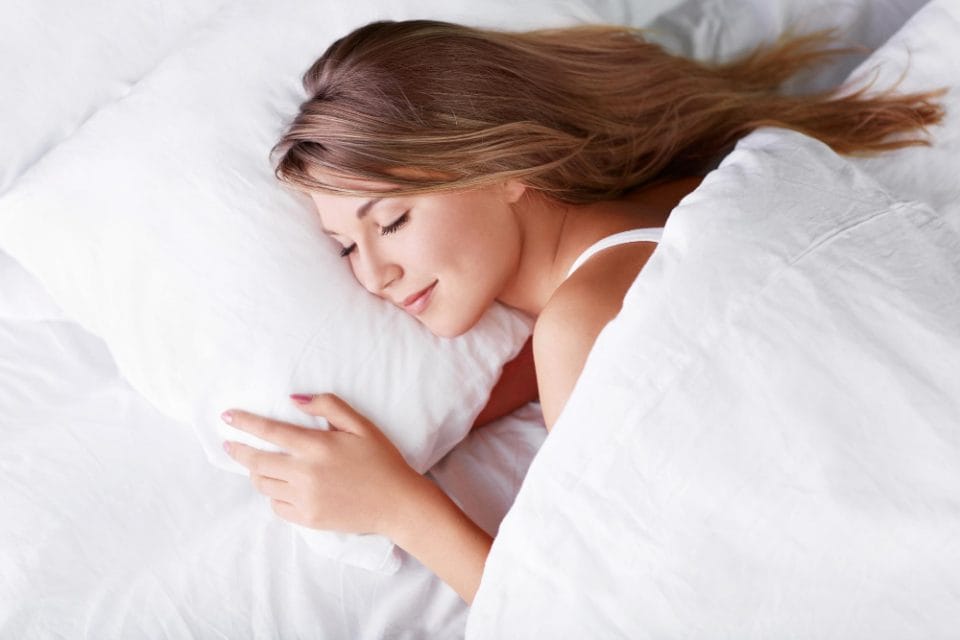Tossing and turning night after night, struggling to find that elusive slumber? If you’re tired of feeling tired, it’s time to explore the connection between CBD and better sleep. CBD, short for cannabidiol, has gained significant attention in recent years for its potential health benefits, including its ability to promote restful sleep. But what exactly is the science behind this buzz? In this article, we delve into the current research and unravel the mystery behind CBD’s sleep-enhancing effects.
CBD, a compound derived from the cannabis plant, interacts with the body’s endocannabinoid system, which plays a crucial role in regulating various physiological processes, including sleep. Studies suggest that CBD may indeed help people alleviate symptoms of insomnia, reduce anxiety, and improve overall sleep quality. But how does it work? And is it safe to use?
Join us as we explore the relationship between CBD and better sleep, backed by scientific evidence, expert insights, more research and real-life testimonials. Discover the potential benefits of CBD as a natural alternative to improve your sleep quality and wake up feeling refreshed and rejuvenated each morning. So, bid farewell to sleepless nights and say hello to a night of deep, blissful sleep with CBD.
Understanding the importance of quality sleep
Tossing and turning night after night, struggling to find that elusive slumber? If you’re tired of feeling tired, it’s time to explore the connection between CBD and better sleep. CBD, short for cannabidiol, has gained significant attention in recent years for its potential health benefits, including its ability to promote restful sleep. But what exactly is the science behind this buzz?
In this article, we delve into the current research on sleep medicine and unravel the mystery behind CBD’s sleep-enhancing effects. CBD, a compound derived from the cannabis plant, interacts with the body’s endocannabinoid system, which plays a crucial role in regulating various physiological processes, including sleep. Studies suggest that CBD may help alleviate symptoms of insomnia, reduce anxiety, and improve overall sleep quality. But how does it work? And is it safe to use?
Join us as we explore the relationship between CBD and better sleep, backed by scientific evidence, expert insights, clinical sleep medicine and real-life testimonials. Discover the potential benefits of CBD as a natural alternative to improve your sleep quality and wake up feeling refreshed and rejuvenated each morning. So, bid farewell to sleepless nights and say hello to a night of deep, blissful sleep with CBD.
What is CBD?
Quality sleep is essential for overall health and well-being. It plays a vital role in our physical, mental, and emotional functioning. Lack of sleep can lead to a wide range of issues, including decreased cognitive function, impaired immune and central nervous system,, increased risk of chronic conditions, and even mood disorders. Understanding the importance of quality sleep is the first step towards improving it.
The science behind CBD and sleep disorders
Before we dive into the connection between CBD and better sleep, let’s understand what CBD is. CBD, or cannabidiol, is a naturally occurring compound found in the cannabis plant. Unlike its cousin THC, CBD does not have psychoactive effects and will not make you feel high. It interacts with the body’s endocannabinoid system, a complex network of receptors and enzymes responsible for maintaining balance in various bodily functions.
Benefits of using CBD for sleep
The relationship between CBD and sleep is still being explored, but there is growing evidence to support its potential sleep-enhancing effects. CBD interacts with the endocannabinoid system, specifically targeting receptors involved in regulating sleep-wake cycles. It may help reduce anxiety and sleep,, alleviate symptoms of insomnia, and promote overall relaxation, leading to better sleep quality.
How to choose the right CBD products for sleep
Using CBD for sleep has gained popularity due to its potential benefits. Studies have shown that CBD may help improve sleep duration, reduce sleep disturbances, and enhance sleep quality. It has also been found to have potential anti-anxiety effects, which can contribute to a more relaxed state conducive to sleep. Additionally, CBD may help manage chronic pain, and inflammation, which can also interfere with sleep.
How to incorporate CBD into your bedtime routine
When it comes to choosing CBD products for sleep, it’s important to consider factors such as potency, purity, and product type. Not all CBD products are created equal, and finding the right one for your sleep needs is crucial. We explore different product options, including CBD oil, capsules, gummies, and topicals, and provide tips on how to select high-quality products that meet your specific sleep requirements.
Dosage and safety considerations for using CBD for sleep
Incorporating CBD into your bedtime routine can be a game-changer for your sleep quality. We provide practical tips on how to integrate CBD into your nightly rituals, from finding the ideal dosage and timing to incorporating relaxation techniques and creating a calming sleep environment. Discover how to make CBD an integral part of your routine and maximize its sleep-enhancing benefits.
Exploring Additional Natural Sleep Aids
While CBD has garnered attention for its potential to enhance sleep quality, there are numerous other natural remedies that can be utilized alongside it to foster a more restful night. Integrating a variety of natural sleep aids can potentially create a more holistic approach to improving sleep hygiene and addressing sleep disturbances.
Melatonin: Often referred to as the “sleep hormone,” melatonin is a popular supplement that can regulate sleep-wake cycles. It is particularly useful for individuals dealing with jet lag or those who have irregular sleep schedules, like shift workers.
Valerian Root: Valerian root is a herbal supplement that has been utilized for centuries as a remedy to various ailments, including sleep disorders. Some studies suggest that valerian root can help to improve sleep quality and reduce the time taken to fall asleep.
Chamomile: Known for its calming properties, chamomile can be consumed as a tea or taken as a supplement to promote relaxation and sleep. Its mild sedative effects can help to soothe anxiety and facilitate a peaceful night’s sleep.
Lavender: The scent of lavender is widely recognized for its ability to induce a state of calmness and relaxation. Using lavender essential oils or incorporating it into your bedtime routine, perhaps through aromatherapy, can enhance sleep quality.
Magnesium: This essential mineral plays a vital role in supporting deep, restorative sleep by maintaining healthy levels of GABA, a neurotransmitter that promotes sleep. Magnesium supplements can be considered to ensure optimal daily intake.
Passionflower: Often utilized to alleviate anxiety and improve sleep, passionflower can be consumed as a tea or supplement. Some research indicates that it might increase the production of GABA, which can reduce brain activity and aid sleep.
Mindfulness and Relaxation Techniques: Engaging in mindfulness exercises, such as meditation or gentle yoga, can alleviate stress and promote a serene mind, facilitating better sleep. Techniques like deep breathing or progressive muscle relaxation can also be beneficial.
Sleep Hygiene Practices: Ensuring that your sleep environment is conducive to rest is crucial. Consider aspects like room temperature, darkness, and noise levels. Investing in a comfortable mattress and pillows, and adhering to a consistent sleep schedule, can also significantly impact sleep quality.
Dietary Considerations: Paying attention to your diet, particularly in the hours leading up to bedtime, is essential. Avoiding caffeine, heavy meals, and sugary foods close to bedtime can prevent disruptions to your sleep.
Incorporating these natural remedies and practices alongside CBD may offer a comprehensive approach to improving sleep. However, it is imperative to note that the effectiveness of these remedies can vary from person to person. As always, consulting with a healthcare professional before introducing new supplements or practices into your routine ensures safe and appropriate use.
Personal experiences and success stories with CBD for sleep
CBD is not the only natural remedy that can promote better sleep. We explore additional sleep aids and lifestyle changes that can complement the use of CBD, including herbal supplements, relaxation techniques, sleep hygiene practices, and mindful meditation. By combining the power of CBD with other holistic approaches to sleep problems, you can create a comprehensive sleep routine that supports restful and rejuvenating slumber.
Conclusion: Unlocking better sleep with CBD
Real-life testimonials provide valuable insights into the effectiveness of CBD for sleep. We share personal experiences and success stories from individuals who have incorporated CBD into their sleep routines and witnessed positive results. These firsthand accounts offer a glimpse into the potential benefits of CBD and inspire others to explore its sleep-enhancing qualities.
Daniel Casciato is one of the co-founders of Pennsylvania Cannabis News.







